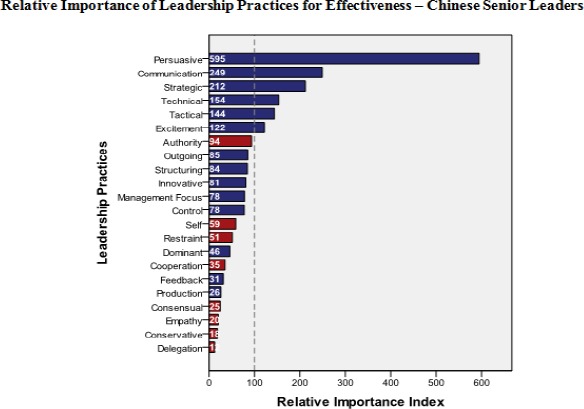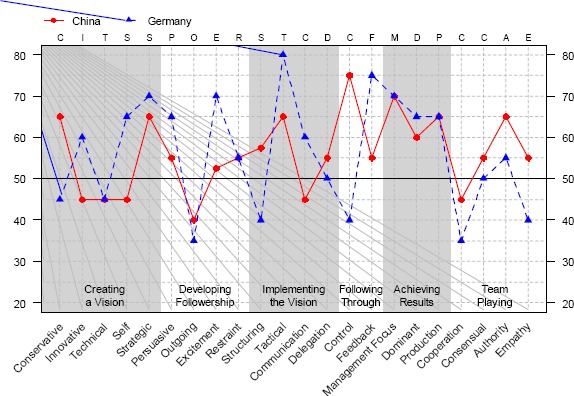Spolupráce s dnešními čínskými obchodními lídry
China’s changing talent pool and growing market competition pose new challenges for European business and SMEs in particular. To better tackle the challenges and continue success in a more volatile environment, having a strong and effective leadership team becomes even more important.
However, a number of existing stereotypes about Chinese leadership styles hinder European companies from recognising the potential strengths of Chinese leaders. The EU SME Centre’s report Developing a Truly Global Leadership Team aims to shed a different light on interpreting Chinese leadership practices, in order to help European SMEs in China to develop a cohesive and effective international leadership team capable of running a successful business in the Chinese market.
By analysing the leadership profiles of 20,184 mid- and senior-level leaders across 18 industries from China and five European countries, the research focuses on how to leverage both similarities and differences between Chinese and European leadership practices, rather than purely identifying the deficiencies of Chinese leaders.
In terms of type of companies in the Chinese leader sample, the data collected represents foreign companies operating in China; private Chinese companies and state-owned enterprises are not represented in this research.
The top five leadership practices that differentiate the most effective Chinese senior leaders include persuasiveness, communication, strategic skills, technical ability and tactical ability. This research also finds significant similarities exist between effective European and Chinese senior leaders, such as being strategic, persuasive and having management focus.

The five European countries that participated in this research were France, Germany, Poland, Spain and the United Kingdom. The graph below provides a comparison between Chinese and German leaders.

Despite exhibiting unique strengths in different areas, overall European leaders excelled in being innovative when compared to their Chinese counterparts. This has proven to be a unique competitive advantage for many European SMEs in the Chinese market. Chinese leaders, on the other hand, exhibit strength in the area of empathy, which is essential in creating a culture that will attract Chinese generation Y and Z employees and is also instrumental for developing a global mind-set in operating international businesses. There are also common areas for improvement for both Chinese and European senior leaders, most notably in the area of communication and cooperation.
Findings in this research can be used to guide European SMEs to discover or develop high-potential Chinese leaders with a global mind-set, and improve communications to foster a culture that facilitates dialogue among Chinese and European leaders. Here are the recommendations for SMEs:
- Encourage mid-level Chinese leaders to become strategic thinkers: Make strategic planning a regular part of the job for mid-level leaders, encourage them to set a regular time aside for strategic planning, and identify senior mentors to work with them.
- Reward new ideas: Include diverse leaders in brainstorming sessions, provide a more flexible culture that appeals to Chinese generations Y and Z and encourage interaction and networking outside the organisation. Reward people who come up with several solutions to a given problem or the solution with the greatest long-term benefit for the organisation.
- Improve communication and influencing skills: Senior leaders should take more time to act as role models to mid-level leaders to help them become more persuasive in presenting proposals and business solutions, listen more and understand different perspectives.
- Develop a global mind-set: Assess candidates’ potentiality as well as past performance when selecting leaders for global projects. Provide them with experiences such as leading virtual teams, working in different functions and managing a variety of internal and external stakeholders. Foster a culture of sharing similarities rather than focusing only on identifying differences.
To get more advice on developing successful leadership team in China, download the full report from the EU SME Centre’s website.

